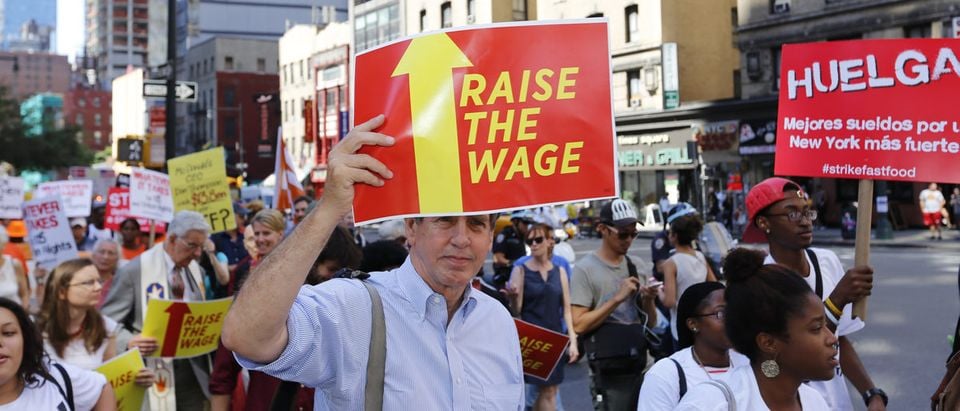Minnesota’s recent minimum wage increases have led to unemployment among low-wage workers, hurting the very workers the policy was meant to benefit, Watchdog.org reports.
All else being equal, “businesses will demand less labor, which could mean fewer workers and/or shorter hours per worker,” said University of Wisconsin economics professor Noah Williams, talking about the effects of the wage hike.
Wisconsin first raised its minimum wage in 2010 to maintain the federal standard of $7.25 an hour. Four years later, Minnesota started raising its minimum wages again in a series of hikes, ending up at $9.65 an hour as of January 2018. This was a full $3 increase of the original 6$ an hour. The effects of this wage hike are widespread because more than 50 percent of both restaurant workers and those under the age of 24 are minimum wage earners statewide.
Williams has been studying the effects of minimum wage increase on Minnesota since 2014, comparing Minnesota’s job and economic data to the neighboring state of Wisconsin.
The workers that were most adversely affected by the wage hikes were those in the restaurant industry and younger people. In comparing the fast food employment data sets of Wisconsin and Minnesota before and after the 2014 wage hike, Williams’ research revealed that both states had the same employment growth rate until 2014. After the 2014 price hike in Minnesota, employment in fast food restaurants in Wisconsin had 4 percentage points more growth than fast food employment in Minnesota’s growth. There was a similar data gap in youth employment as well, with Minnesota dropping 9 percentage points in young workers while Wisconsin increased by 10 percentage points of young workers. Williams concluded that the Minnesota minimum wage increases were the primary reason for this percentage point gap.
“There were workers willing to work for wages that were less than the new, higher minimum wage and businesses that were willing to hire them for that … The distortion is that the minimum wage [hike] rules out mutually beneficial agreements between workers and firms,” said Williams.
“The people who will be hit by this measure are not these big businesses, but the independent bookseller whose margins are being squeezed by Amazon, the immigrant store owner competing with Target and Walmart, or the nonprofit trying to give a disabled worker a break,” Economist for the Center of the American Experiment John Phelan told Watchdog.
There are also consumers who are affected by these wage hikes. Minnesota’s minimum wage hikes are causing price increases causing price increases in restaurant food and decreases in new jobs available, due to firms now turning to automation to offset the higher labor costs.


